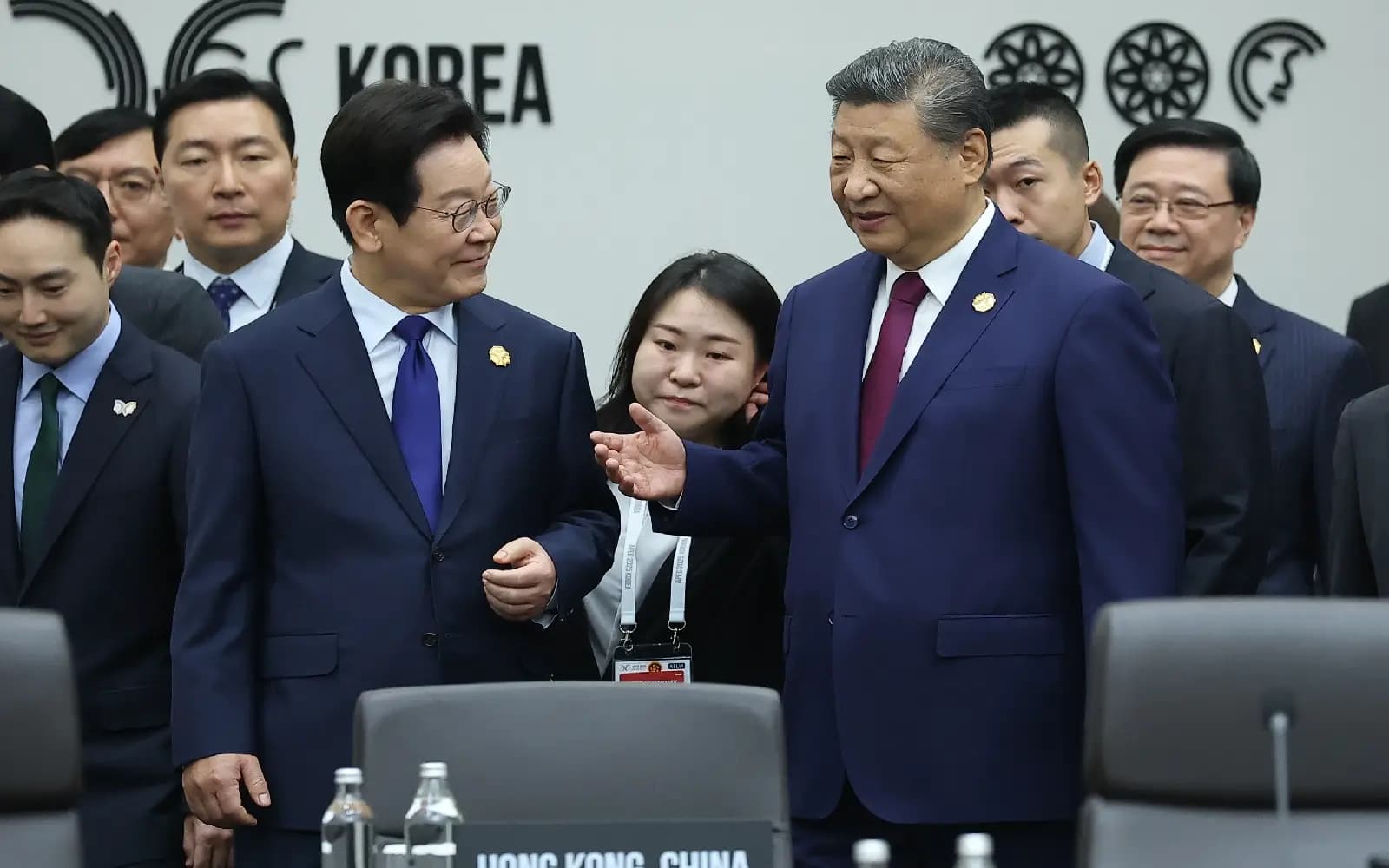We're loading the full news article for you. This includes the article content, images, author information, and related articles.
A lighthearted remark by China's president about security flaws in gifted Xiaomi phones resonates deeply in Kenya, a nation increasingly reliant on Chinese technology for its digital economy.

GLOBAL – A candid moment between the leaders of China and South Korea on Saturday has ignited a global conversation on technology security with direct implications for Kenya and the wider East African region. During a state visit, Chinese President Xi Jinping gifted his South Korean counterpart, Lee Jae Myung, two smartphones from Chinese tech giant Xiaomi, jokingly advising him to “check if there’s a backdoor.” [4, 10, 14]
The exchange occurred on Saturday, November 1, 2025 (EAT), in Gyeongju, South Korea, on the sidelines of the Asia-Pacific Economic Cooperation (APEC) forum. [4, 16] The meeting marked President Xi's first visit to the U.S. ally in 11 years, a trip aimed at mending and strengthening diplomatic and economic ties. [4, 15] After President Lee presented Xi with a traditional Go board, the focus turned to the Chinese gifts. When Lee humorously questioned the communication security of the Xiaomi devices, Xi's jesting reply about a “backdoor”—a term for a hidden method to bypass security controls—drew laughter from officials present. [4, 5, 14]
While delivered in a lighthearted atmosphere, President Xi's comment lands against a backdrop of intense global scrutiny over the security of Chinese technology. The United States and other Western nations have long expressed concerns that technology from Chinese firms could be used for state-sponsored espionage, a charge that Beijing has consistently denied. The joke itself subtly references these persistent allegations, which have fueled a protracted tech rivalry between Washington and Beijing. [12, 27]
The choice of a Xiaomi phone as a diplomatic gift was symbolic in itself, presented in the home country of Samsung, one of the world's largest electronics manufacturers. The incident underscores China's technological ambitions and its push for global market dominance, even in nations with strong domestic tech industries. [4] The broader summit focused on enhancing regional cooperation, with President Lee also seeking China's assistance in resuming dialogue with North Korea. [16, 19]
For Kenya, this high-level banter is far from trivial. The nation's digital transformation has been significantly accelerated through partnerships with Chinese technology firms. [6, 7] Companies like Huawei have been instrumental in developing digital infrastructure across Kenya's 47 counties, and Chinese smartphones, including those from Xiaomi, hold a substantial share of the East African market. [7] In October 2023, President William Ruto's administration signed a memorandum of understanding with Huawei to further promote digital transformation. [7]
This deep integration makes the question of technological integrity paramount. Cybersecurity experts have previously identified vulnerabilities in Xiaomi devices. In May 2024, security research firm Oversecured announced the discovery of 20 vulnerabilities in Xiaomi's software that could have allowed hackers to access user data and passwords. [22, 26] While Xiaomi reportedly fixed the identified flaws, the findings highlight the persistent security challenges in complex mobile ecosystems. [26] The term “backdoor” specifically points to the risk of unauthorized remote access, a critical concern for government, corporate, and individual users in Kenya's increasingly mobile-first economy, where mobile money transactions exceeded half of the national GDP in 2024. [18]
China remains Kenya's largest trading partner, with collaborations extending from infrastructure and agriculture to technology transfer and skills training for youth. [6, 8] This partnership is vital for achieving the country's economic development goals, including its vision of becoming a regional tech hub. [7, 11] However, President Xi's seemingly off-the-cuff remark serves as a critical reminder of the complex geopolitics embedded in technology. It emphasizes the need for robust, independent verification of all digital systems and a national cybersecurity strategy that can safeguard Kenya's sovereignty and the data privacy of its citizens. As Kenya continues to build its digital future, balancing the benefits of international partnerships with the imperative of security will remain a defining challenge.
Keep the conversation in one place—threads here stay linked to the story and in the forums.
Sign in to start a discussion
Start a conversation about this story and keep it linked here.
Other hot threads
E-sports and Gaming Community in Kenya
Active 9 months ago
The Role of Technology in Modern Agriculture (AgriTech)
Active 9 months ago
Popular Recreational Activities Across Counties
Active 9 months ago
Investing in Youth Sports Development Programs
Active 9 months ago